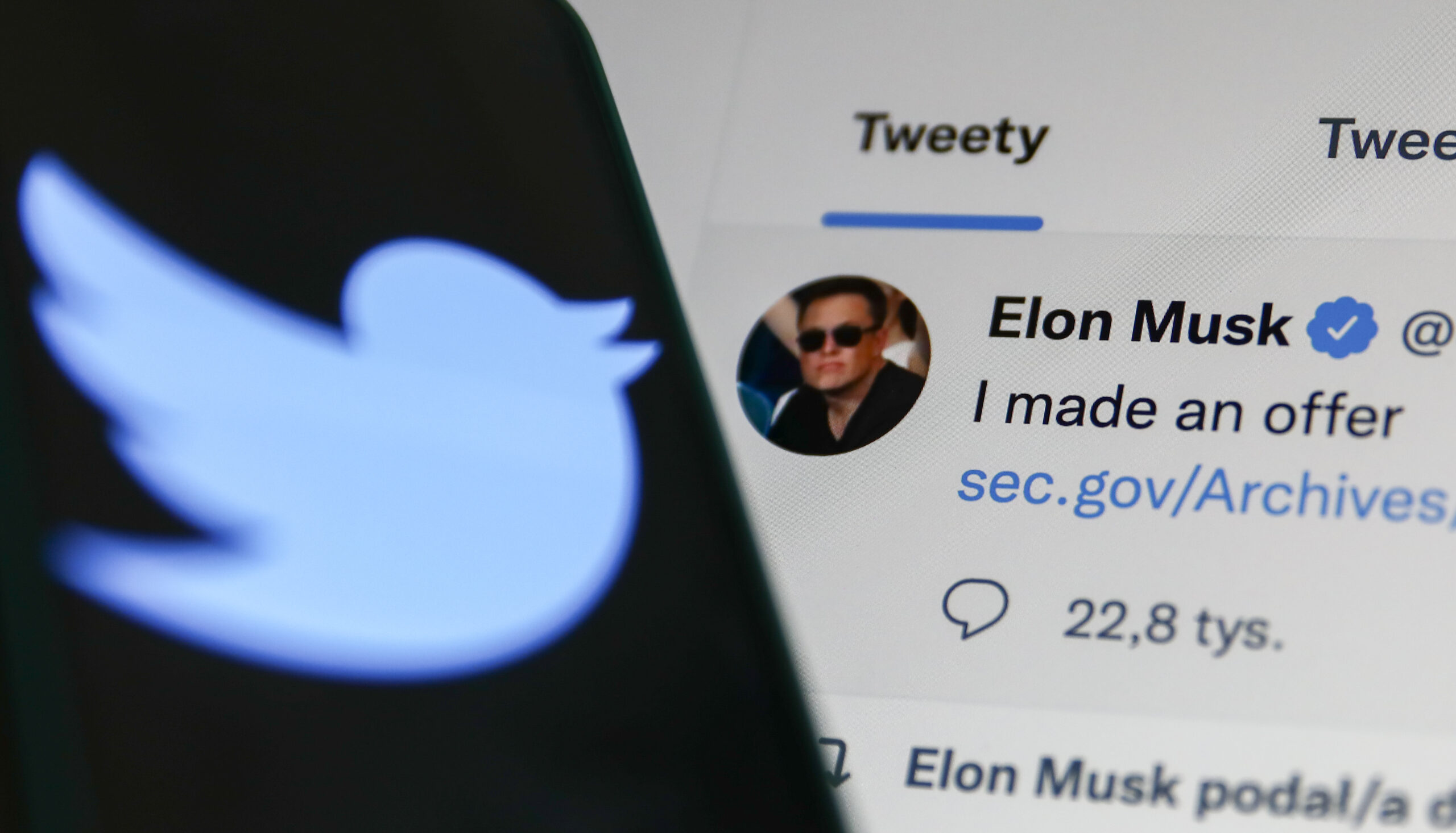Elon Musk has changed course and agreed to buy Twitter for $44 billion ahead of a scheduled trial, the company confirmed on Tuesday.
The Tesla CEO proposed moving forward with a widely publicized deal to buy Twitter in a letter filed with the SEC, and the company says it plans to close the deal. The buyout puts to rest a testy, months-long legal battle between the billionaire and the San Francisco-based social media firm that has raised questions over the company’s future in the city.
“The intention of the Company is to close the transaction at $54.20 per share,” wrote a Twitter spokesperson in a statement.
Musk first agreed to buy Twitter at $44 billion in April. Weeks later, however, he alleged that the company had downplayed the number of inauthentic “bot” accounts on the site, effectively claiming that Twitter falsely inflated the size of its user base.
Musk is one of the most-followed accounts on Twitter, with 108 million followers as well as a history of erratic posts that have landed him in legal trouble at times. He has frequently used his account to lob criticisms at Twitter and offer up ideas for features.
Before making a formal offer to buy the firm, Musk had already accumulated enough shares to become the largest individual shareholder, and his initial offer represented a roughly 38% premium over the company’s share price as of April 1.
By July, however, Musk had soured on the deal and backed away from his bid to buy the company. That led Twitter to file a lawsuit against Musk; a trial is scheduled to begin on Oct. 17 in Delaware Chancery Court.
Musk was viewed by analysts as likely to lose in court, and if the $44 billion deal closes, it’s likely to renew worries about the mercurial billionaire’s plans for the social network.
In a now-deleted tweet before backing out of the deal, Musk had suggested the idea of turning Twitter’s San Francisco headquarters into a homeless shelter, among other proposed changes to its content moderation policies and business model.
“Musk owning the Twitter platform will cause a firestorm of worries and questions looking ahead among users and the Beltway,” Wedbush analyst Dan Ives wrote in a note on Tuesday.
